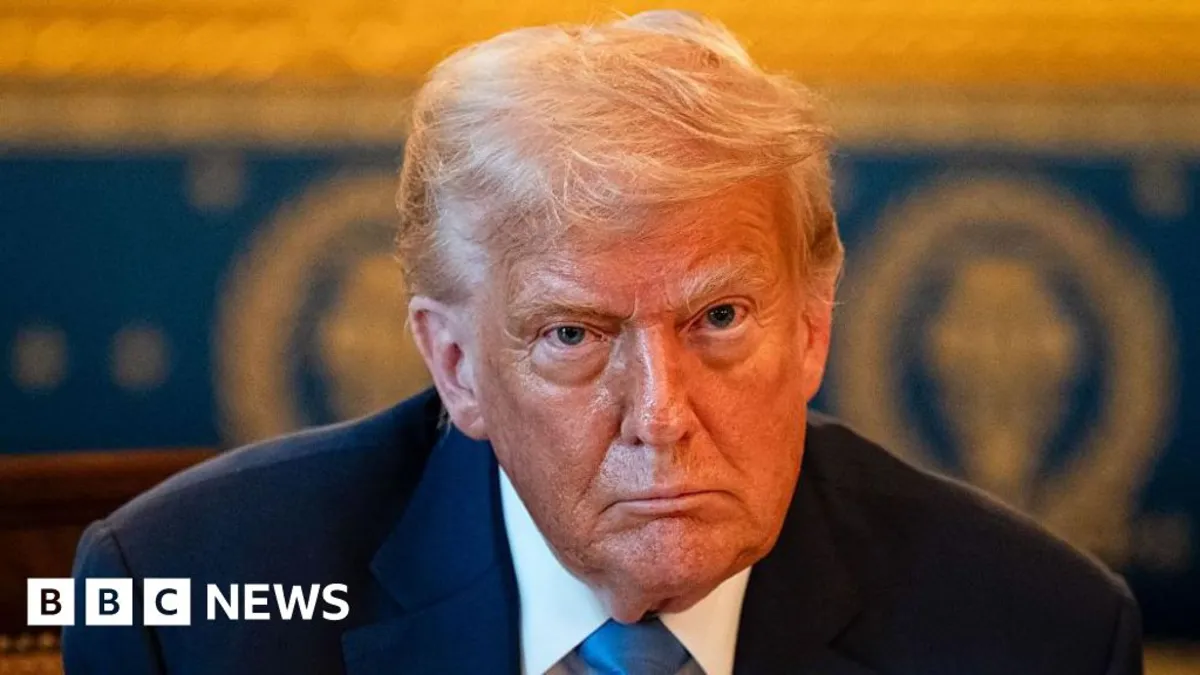
Asia is currently grappling with the repercussions of President Donald Trump's latest tariff threats, which have sent shockwaves through the region's economies. Japanese Prime Minister Shigeru Ishiba has labeled the proposed 25% levy on Japanese goods as "deeply regrettable." As a long-time ally of the United States, Japan has been actively trying to negotiate concessions for its struggling automobile manufacturers, while simultaneously resisting pressure to open its markets to American rice imports.
Despite multiple rounds of negotiations, Japan's trade minister has made at least seven visits to Washington D.C. since April, when Trump announced broad tariffs affecting both allies and adversaries. Unfortunately, these diplomatic efforts appear to have yielded minimal results. The U.S. President's characterization of Tokyo has shifted from "tough" to "spoiled" as discussions have stalled. Recently, Japan joined a list of 23 countries, 14 of which are in Asia, that received tariff notification letters from the Trump administration.
On Friday, Trump announced a staggering 35% tariff on goods imported from Canada and indicated plans to increase blanket tariffs from 10% to up to 20% on many trade partners. He confidently dismissed concerns about potential inflationary impacts, stating, "We're just going to say all of the remaining countries are going to pay, whether it's 20% or 15%." The looming deadline of August 1 for countries to strike a deal with the U.S. has left many wondering about their chances of avoiding these steep tariffs, especially given Japan's ongoing challenges.
In this complex scenario, some nations may find themselves benefiting from the extended deadline. According to Suan Teck Kin, head of research at United Overseas Bank, countries targeted by Trump now have an additional three weeks to negotiate favorable deals. This is particularly advantageous for growing economies like Thailand and Malaysia, which are caught in the crossfire of U.S.-China tensions as the U.S. targets Chinese exports rerouted through third countries.
However, economists suggest that further extensions of negotiations are likely due to the intricate nature of trade agreements. Alex Capri, a business lecturer at the National University of Singapore, notes that the demands from Trump’s administration are not entirely clear, creating uncertainty for countries like Vietnam, which already has a trade deal with the U.S. involving transhipped goods.
While some nations may gain time for negotiations, the overall picture for Asian manufacturers appears bleak. The persistence of tariffs poses risks not only for exporters but also for U.S. importers and consumers. The manufacturing-driven economies of Asia, which have thrived on global trade, are facing significant challenges. Mr. Capri warns that it is unwise to make simple assessments of who is winning or losing, as the interconnections of international trade complicate the situation.
Despite Japan's longstanding economic and military alliance with the United States, it is now facing treatment similar to other Asian trade partners. Economist Jesper Koll suggests that this could alter the dynamics of the relationship. Japan, equipped with substantial financial reserves, is prepared for a protracted negotiation process. Prime Minister Ishiba's refusal to purchase U.S. rice amid a national shortage highlights Japan's commitment to protecting its domestic farmers.
As Japan gears up for its upper-house election this month, a timely agreement by August seems unlikely. Yet, economic experts believe that Japan's resilience will prevent a recession, despite the ongoing tariff threats.
Asia has long been a battleground in the rivalry between Washington and Beijing. Analysts suggest that Trump’s tariff strategy may inadvertently diminish the U.S.'s bargaining power. The complexity of trade agreements means that extending the deadline could be a miscalculation. David Jacks, a professor at NUS, argues that the U.S. has revealed vulnerabilities in its negotiating position, while Mr. Capri warns that Trump's unconventional approach to diplomacy could backfire, providing an opening for China to position itself as a more stable alternative.
As both nations navigate their own trade negotiations, it remains uncertain who will ultimately emerge victorious in this ongoing trade war. The road ahead is fraught with challenges, and both the U.S. and China will need to tread carefully as they attempt to redefine their economic relationships with Asia.